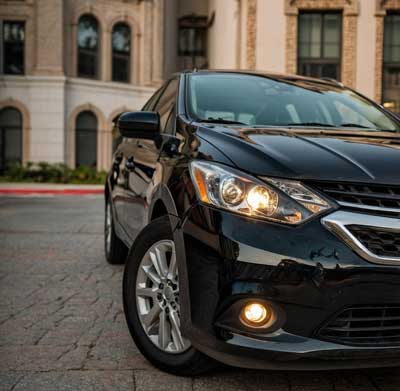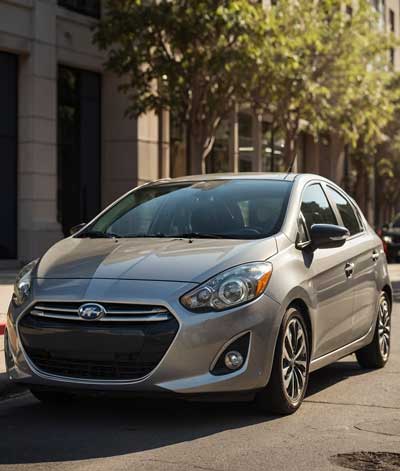
Affordable Auto Coverage Without A Down Payment
Finding affordable car insurance can be tough, especially without a down payment. Many insurance companies need some money upfront. This guide on “How To Find Cheap Car Insurance With No Down Payment” shows you how to lower your initial payment.
Start saving on your auto coverage today.
Understanding "No Down Payment" Car Insurance

No down payment car insurance lets you begin coverage without an upfront payment. Many insurers offer this option, but you must qualify based on specific requirements.
Definition and Availability
Most auto insurers require an initial payment for coverage. This payment usually covers the first month’s premium. Some companies ask for enough to cover 30 to 45 days of insurance.
No down payment car insurance means paying just the first month upfront. It is part of the total insurance rate, not an extra fee. High-risk drivers might need a higher initial payment.
Insurance companies like State Farm and Progressive offer options with low initial costs.
Paying your first month’s premium is essential to activate your coverage.
Affordable auto insurance without a large down payment is available through various insurance companies. Compare quotes to find the best rates. Pay-as-you-go plans can also reduce the need for a large upfront payment.
Eligibility Criteria
Insurance companies set different rules for no-down-payment car insurance. Each provider and plan have their own requirements. State laws also affect eligibility. Factors like your credit score and driving record are important.
High-risk drivers might find it harder to get low down payment options. Insurance agencies look at your risk level to decide. Make sure to check the specific criteria of each insurance policy.
Understanding these rules helps you find the right coverage without a big down payment.
Strategies to Find Low Down Payment Car Insurance
Compare quotes from different insurance companies to find the best rates. Choose pay-as-you-go plans or look for first-month-free offers to keep your initial costs low.
Compare Insurance Quotes
Comparing insurance quotes helps you find the best deal. It ensures you get coverage that fits your budget.
- Use Online Tools: Utilize websites like Insurify to compare rates from multiple insurance companies quickly.
- Gather Multiple Quotes: Request quotes from at least three different insurers to see a range of premiums and coverage options.
- Check Coverage Details: Ensure each quote includes the same coverage types, such as liability and comprehensive insurance, for an accurate comparison.
- Look for Discounts: Identify companies that offer discounts for safe driving, low mileage, or bundling policies to reduce your premiums.
- Evaluate Customer Satisfaction: Research customer reviews and ratings to choose an insurance agency known for good service and reliable coverage.
- Consider Payment Options: Compare monthly payment plans and pay-as-you-go insurance to find a plan that doesn’t require a large down payment.
- Review Policy Limits: Make sure the liability coverage limits meet your needs without increasing your insurance premium unnecessarily.
- Assess Deductibles: Choose deductibles that you can afford in case of a claim, balancing lower premiums with manageable out-of-pocket costs.
- Check for Additional Perks: Some insurers offer benefits like paperless billing or automatic payments, which can add value to your policy.
- Verify Eligibility Criteria: Ensure you meet the requirements for low down payment options, such as having a good credit score or a clean driving record.

Opt for Pay-As-You-Go Plans
After comparing car insurance quotes, consider pay-as-you-go plans. These policies charge based on miles driven. Metromile and Hugo are top providers. Nationwide’s SmartMiles offers similar options.
Pay-per-mile insurance can lower premiums for low-mileage drivers.
These plans suit those who drive less. For example, driving under 10,000 miles a year can reduce costs. However, there may be coverage gaps or penalties for extra miles. Choose a plan that matches your driving habits to save money.
Seek Out First-Month-Free Offers
Find insurance companies offering first-month-free deals. This lets you start your insurance without an upfront payment. GEICO and Progressive often have such promotions. Visit their websites or contact an insurance agent to learn more.
Comparing quotes on sites like thezebra.com can help you find the best offer. First-month-free offers reduce your initial insurance premiums. Ask about car insurance discounts to lower costs even more.
Pay-as-you-go plans may have low down payments. These strategies help you get insurance coverage without a large initial payment.
Tips to Reduce Overall Car Insurance Costs
Lower your insurance costs by boosting your credit score. Pick the right coverage and use discounts to save more.
Improve Your Credit Score
Improve your credit score to lower your car insurance costs. Insurance companies use your credit history to set premiums. A higher credit score can save you up to $3,000 each year.
Pay your bills on time and reduce credit card balances. Check your credit report for errors and correct them. Good credit helps you get better rates from insurance companies and agents.
Choose the Right Coverage
Select coverage based on your car’s value. For cars under $4,000, reconsider full coverage. State minimum liability costs $298 for six months ($50/month). This covers basic damage and injuries.
If you need more protection, choose BI/PD with a $1,000 deductible. This option costs $777 for six months ($129/month). A lower deductible of $500 raises the cost to $880 for six months ($147/month).
Compare options from different insurance companies. Pick a plan that fits your budget and needs.
File Claims Wisely
After choosing the right coverage, managing your claims is crucial. Filing claims wisely helps keep your premiums low. When you make a claim, insurance companies may raise your rates.
For example, your premium could go up by $384 after six months. After one year, it might increase by $767. Over three years, the rise can reach $2,301. These increases can last up to three years, affecting your monthly payments.
To avoid high costs, only file claims for significant damages. This strategy helps you maintain affordable car insurance and protects your budget.
Ask for Discounts
Having wisely handled your claims, next step is to lower your premiums further. Ask your insurance agents about available discounts. Good driver, student, and multi-policy discounts are common.
Going paperless or using telematics can also save you money. Safe driving discounts reduce your overall costs. Don’t hesitate to request all applicable discounts to make your car insurance more affordable.
Alternative Options for No Down Payment Coverage
Many insurers offer flexible monthly payment plans that let you secure coverage without a big upfront cost. You can also find companies that specialize in low down payment options to suit your budget.
Monthly Payment Plans

Monthly payment plans help you manage car insurance costs without a large upfront payment. Insurance companies may require payment for 30-45 days of coverage initially. For instance, you can choose to pay 10% down ($60) and then $108 each month.
Alternatively, pay 20% down ($120) with a $96 monthly premium or 30% down ($180) and $84 monthly. These options make full coverage car insurance more accessible and fit different budgets.
Low Down Payment Providers
Progressive and GEICO are top choices for low down payment car insurance. Progressive charges $342 for six months, while GEICO offers $288. These insurance companies help reduce your initial costs, making coverage more accessible.
USAA has the lowest rates at $256 for six months, but it’s only available to military members and their families.
Other providers include Farmers at $411, State Farm at $419, Nationwide at $437, and Allstate at $517 for six months. These companies offer various plans to fit different budgets. Compare rates from multiple insurance companies to find the best low down payment option for your car insurance needs.
Temporary Car Insurance Options
Transitioning from low down payment providers, temporary car insurance offers flexible coverage for short-term needs. Insurance companies like The Zebra and Progressive provide policies for periods ranging from a day to several weeks.
These options are ideal for renting a car, traveling, or using a motor home without committing to a long-term plan. Policyholders benefit by avoiding large upfront costs, paying only for the coverage they require.
Temporary car insurance ensures you stay protected during specific times without the burden of a down payment.
Common Questions About No Down Payment Car Insurance
People often have questions about no down payment car insurance. From which insurance companies offer the best deals to how it affects your premiums, we’ve got the answers you need.
Do all companies require a down payment?

Most insurance companies require an initial payment for car insurance. Typically, you pay the first month’s premium upfront. This deposit starts your coverage and ensures you’re protected from day one.
Insurance companies accept various payment methods, including credit cards and debit cards, to make it easier for you.
No company offers zero-down car insurance. All insurers need some payment to begin your policy. Even low down payment plans require the first month’s premium. This upfront payment helps cover the risk and costs associated with your coverage.
Always check with your insurance provider to understand their payment options.
Which companies offer the lowest down payments?
GEICO offers low down payments with rates around $48 per month. Progressive is another good choice, charging about $57 each month. For military members, USAA is the cheapest option at $43 per month.
These companies make it easier to start your car insurance without a large upfront payment. If you qualify for USAA, it provides the best rates. Otherwise, GEICO and Progressive are great alternatives.

How can low down payment affect my premiums?
A low down payment means you pay less upfront for your car insurance. This can lead to higher monthly premiums. Insurance companies charge more each month to cover the smaller initial payment.
If you choose a lower down payment, expect your monthly bills to increase. On the other hand, a larger down payment can reduce your monthly costs. This balance helps manage your overall car insurance expenses effectively.
Conclusion
Finding affordable auto insurance without a big down payment is possible. Start by comparing quotes from companies like GEICO and Progressive. Choose pay-as-you-go plans or first-month-free offers to lower your initial costs. Improve your credit score and ask for discounts to reduce your premiums. These steps help you get the coverage you need without a hefty upfront payment.

